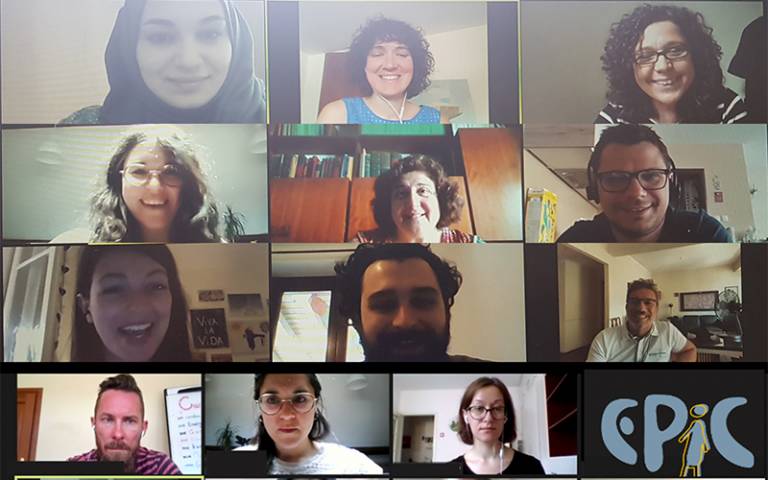DPU's Giovanna Astolfo conducts conversation series as part of project on the pandemic on migration
23 June 2020
Coinciding with the Refugee Week, DPU conducts a series of conversations (17, 18 and 19 June) on the impact of the pandemic on migration, and local responses across nine cities. This is part of the EU funded project EPIC and led by Giovanna Astolfo.

Since the pandemic, there has been a small wave of research that examines changes in migration flows, discourses, behaviours and patterns. While the virus has created a ‘portal’ that opens up a new space to relate to others and many advocates for a global politics of solidarity and care, what does this mean for a migrant? What is the ‘right to health’ for a refugee in the midst of lockdown? To what extent has the crisis invisibilised or visibilised migrant lives? Why has migration suddenly disappeared from public discourse just to reappear shortly after to reinforce the importance of migrants as labourers? Why there is an increased competition over jobs and housing between premium and non premium population while media are talking about global solidarity? What is the missing link between care and human rights in European migration?
These are some of the questions discussed in a series of conversations as part of the project EPIC funded by the Asylum and Migration fund. The conversations bring together twenty between NGOs and local municipalities dealing with the impact of covid. The conversations touch upon affective and emotional labour, food and shelter provision, political participation and right to the city.
In the nine cities that are part of the project live asylum seekers and refugees from North and Sub Saharan Africa and Middle East, undocumented and economic migrants from within Europe, Asia and Latin America, and seasonal migrants. This is a composite and complex ensemble of ‘unsettled’ individuals, whose mobility or immobility do not fall into linear behaviours– and that often exceed the controlling measures undertaken to contain covid.
Each city has a different biography of migration as well has put in place different more or less coordinated responses to covid for and by migrants. It is a complex story to be told. From the lack of government support, to the bureaucratisation of humanitarian intervention, to new policies for the exploitation of migrant labour, to escalating hate discourse and raising racial injustice, we discuss forms of resistance to the erosion of the migrant right to the city.
The EPIC project is funded by the Asylum, Migration and Integration fund. It examines practices of integration in nine European territories, from the metropolitan area of Lisbon to the port city of Gdanks, and from the postindustrial city of Oberhausen to the island of Sardinia. Exploring the diversity of responses to migration across these European urban spaces and the different strategies put in place by migrants to navigate and learn the city, the research wishes to reframe integration away from current dominant paradigms, and instead conceptualize it as a relational, embedded practice
 Close
Close

